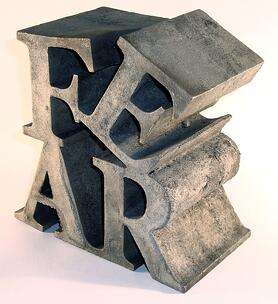If you are living with the stress of too much debt, I have a question...what would you feel like if you were DEBT FREE?. Regardless of your financial circumstances, you can be DEBT FREE... How would that feel?
If you were to do a search about the average family debt in America, you would get statistics all over the board. But, if you were to average them out, here is a basic picture of the average American family's debt:
- Total debt per family $ 17,500
- Credit card debt $ 7,500
Now let's think about that for a minute. If these are the averages, that means that some households have much lower over-all debt and therefore lower credit card debt.
But on the other hand, that means that some households have much higher over-all debt and therefore much higher credit card debt! After helping people solve their debt issues for over 10 years, I have found that our average client has credit card debt that totals about $25,000!
Big question...
 HOW WOULD YOU FEEL IF YOU WERE DEBT FREE ? ? ?
HOW WOULD YOU FEEL IF YOU WERE DEBT FREE ? ? ?
Have you ever thought about it?
I'm not talking about dreaming about winning the lottery, but finally paying off everything and everybody you owe!
No debt...zero...nada !
- No more waking up in the middle of the night worrying about the bills!
- No more standing at the check out counter and praying the card is not declined!
- No more making excuses because you really can't afford to go with your friends!
- No more dreading the end of the month,knowing there is not enough to pay all the bills!
- Get the idea??? NO MORE ! ! !
I was talking to a good friend of mine about this and he said that to him, being DEBT FREE is better than about anything you could imagine! I think he's right!
When you under the burden, pressure and stress of DEBT, you really can't enjoy life.
I mean, what good is driving a new car if you know you really can't afford it? Sure, you have a nice big home, but the truth is, you can barely keep up with the payments, much less pay for any maintenance or additional "trimmings".
OK...I think I've made my point. Are you ready be Debt Free?
Or...are you ready to...FEEL WHAT IT'S LIKE TO BE
DEBT FREE?

STEP ONE
It's time to get down to business...financial responsibility. (Really...has it come to that?) Financial responsibility starts with an honest accounting for every dollar that comes in, but most important, that goes out.
Yep, the old BASIC HOUSEHOLD BUDGET.
List everything you are spending money on. Not just the big items like rent or mortgage, car payment, groceries and utilities... I said you have to be honest!
What about:
- Daily latte at Starbucks? Really? At $4 -$5 per day?
- Health club membership you rarely use? Seriously?
- Buying lunch out instead of making a sandwich?
- OK...I know I may be over stepping, but what about that smoking habit? At $5/pack?
- And yes, you better address all the other little "things" that can really add up!
STEP TWO
Now that you've found a few (or several) extra dollars from getting rid of some, if not all, of your "wasteful spending habits", you can start down the road to financial freedom!
Depending on your individual financial circumstances, you most likely will be a candidate for one of the following programs:
- Debt "Roll-Up" or Snowball Plan
- Debt Settlement
- and if none of the above works...Bankruptcy
A DEBT "ROLL-UP" OR Snowball Plan
If you have found an extra $100 or more from making cuts from you "out-go" in the budget and, you have the self discipline to follow through with the program, this might just work for you.
Basically, you are going to list all of your unsecured debt (you can do all debts, but for now let's just tackle the unsecured ones).
List from the smallest balance to the largest balance. Don't worry about interest rates now.
Le't say the smallest balance requires a $50/month minimum payment and you have an extra $200 (from all of the $ you were wasting). You are going to pay $250 towards this balance until it is paid off.
After it is paid off, you are going to start on the next balance. Let's say you have been making $100/month as a minimum payment on this one. Now, you are going to add the $250 from paying off the first balance to the normal $100 for a total of $350 going after this second balance.
Once it's paid off, you're going to add $350 to whatever the minimum payment is on the next balance...and so on...and so on.
Guess what? You're going to have all of these unsecured debts paid off before you know it!
HOW'S THAT GONNA FEEL???
Oh yeah, baby!!!
And since this worked so well on the unsecured debts, what about adding the extra money you now have from paying all of them off to your mortgage or student loans? Wow!
Need some help with this?
If you don't have any extra money or if it seems a little "overwhelming", then you should consider a DEBT SETTLEMENT PLAN.
Debt Settlement is for people who, because of circumstances beyond their control, find themsleves in serious debt. If you can't afford the minimum payments on all of your unsecured debts and/or some have been turned over to a debt collector, you would profit from a Debt Settlement Plan.
Debt collectors are usually willing to accept less than the balance due because of your financial hardship. This can be 50% or more, again, depending on several factors.
Once the balance has been negotiated and the debt settlement agreement is paid per the debt settlement agreemenet, this account will be noted on your credit report as "paid-in-full" or "paid-as-agreed" or even "settled at less than the balance due". Regardless, the balance is ZERO....$0.
Let me ask you again...
HOW'S IT GONNA FEEL TO BE DEBT FREE!!!
OK, let's say that things are so bad you can't take advantage of the Debt "Roll-UP" Plan or even the Debt Settlement Plan, then you should consider Bankruptcy.
You will need to find a compentent bankruptcy attorney, but be careful! You should interview two or three in your area and get some references.
You should not have to pay too much up-front for their services and you should not have to pay anything for the initial consultation.
But even if you have no choice but to file for bankruptcy, life is not over! The bankruptcy process is not as bad as you imagine. In fact, once it is completed, not only will you be DEBT FREE once again, you will be able to rebuild your credit a lot quicker than you think.
Sit back, close your eyes...one more time, let me ask you...
HOW WOULD YOU FEEL IF YOU WERE DEBT FREE?
Then do something about it...







 When you settle a debt for less than the full balance due, and this is for $600 or more, the creditor or debt collector may report this to the Internal Revenue Service. I say "may report" because they don't always report a settled or "forgiven" debt.
When you settle a debt for less than the full balance due, and this is for $600 or more, the creditor or debt collector may report this to the Internal Revenue Service. I say "may report" because they don't always report a settled or "forgiven" debt. 

 If you live in Oregon, I've got some good news on how you can find debt relief!
If you live in Oregon, I've got some good news on how you can find debt relief! Confused about Debt Settlement? Here are some easy to understand, basic information about debt settlement that will help.
Confused about Debt Settlement? Here are some easy to understand, basic information about debt settlement that will help. When you have too much credit card debt, you only have a few options.
When you have too much credit card debt, you only have a few options. 

